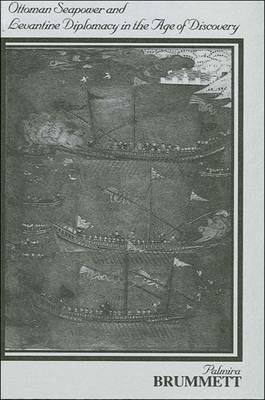
- Afhalen na 1 uur in een winkel met voorraad
- In januari gratis thuislevering in België
- Ruim aanbod met 7 miljoen producten
- Afhalen na 1 uur in een winkel met voorraad
- In januari gratis thuislevering in België
- Ruim aanbod met 7 miljoen producten
Ottoman Seapower and Levantine Diplomacy in the Age of Discovery
Palmira BrummettOmschrijving
This work reframes sixteenth-century history, incorporating the Ottoman empire more thoroughly into European, Asian and world history. It analyzes the Ottoman Empire's expansion eastward in the contexts of claims to universal sovereignty, Levantine power politics, and the struggle for control of the oriental trade. Challenging the notion that the sixteenth-century Ottoman Empire was merely a reactive economic entity driven by the impulse to territorial conquest, Brummett portrays it as inheritor of Euro-Asian trading networks and participant in the contest for commercial hegemony from Genoa and Venice to the Indian Ocean. Brummett shows that the development of seapower was crucial to this endeavor, enabling the Ottomans to subordinate both Venice and the Mamluk kingdom to dependency relationships and providing the Ottoman ruling class access to commercial investment and wealth.
Specificaties
Betrokkenen
- Auteur(s):
- Uitgeverij:
Inhoud
- Aantal bladzijden:
- 301
- Taal:
- Engels
Eigenschappen
- Productcode (EAN):
- 9780791417027
- Verschijningsdatum:
- 23/12/1993
- Uitvoering:
- Paperback
- Formaat:
- Trade paperback (VS)
- Afmetingen:
- 151 mm x 230 mm
- Gewicht:
- 403 g

Alleen bij Standaard Boekhandel
Beoordelingen
We publiceren alleen reviews die voldoen aan de voorwaarden voor reviews. Bekijk onze voorwaarden voor reviews.









